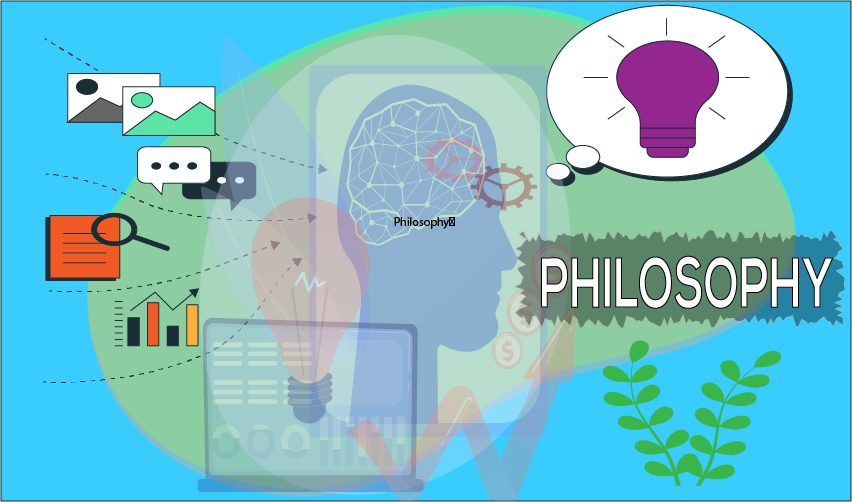Philosophy is the study of fundamental questions regarding existence, knowledge, values, reason, mind, and language. Throughout history, philosophers have attempted to answer life’s most profound questions, such as “What is the meaning of life?” “What is truth?” and “What is the nature of reality?” Philosophy provides a framework for exploring these questions and developing critical thinking skills.
1. What is Philosophy?
At its core, philosophy is about asking questions and seeking answers about the world around us. It’s an academic discipline that explores concepts like reality, morality, logic, and the mind. Philosophers use reasoning and argumentation to analyze and critique ideas, aiming to uncover truths and understand the nature of things.
2. Branches of Philosophy:
Philosophy is divided into several branches, each focusing on a different aspect of human experience:
- Metaphysics: The study of existence and the nature of reality. It deals with questions like “What is the nature of being?” and “What is the universe made of?”
- Epistemology: The study of knowledge and belief. It explores how we know what we know, the sources of knowledge, and the limits of human understanding.
- Ethics: The study of moral principles and how humans should act. Ethics deals with questions of right and wrong, good and evil, and moral responsibility.
- Logic: The study of reasoning. It focuses on the principles of valid inference, argumentation, and the rules of thought.
- Aesthetics: The study of beauty, art, and taste. Aesthetics considers questions about what makes something beautiful and how art influences human emotions.
- Political Philosophy: The study of government, justice, and individual rights. It examines how societies should be organized and the role of the individual within a society.
3. Philosophical Schools of Thought:
Over the centuries, various philosophical schools of thought have emerged, each offering different perspectives on life and knowledge. Some of the most influential schools include:
- Ancient Greek Philosophy: The foundation of Western philosophy, with key figures like Socrates, Plato, and Aristotle.
- Existentialism: Focuses on individual freedom, choice, and the search for meaning in a seemingly indifferent universe, with philosophers like Jean-Paul Sartre and Søren Kierkegaard.
- Rationalism: Emphasizes the role of reason and intellect in gaining knowledge, with philosophers like René Descartes and Baruch Spinoza.
- Empiricism: Stresses the importance of sensory experience in the formation of knowledge, represented by philosophers like John Locke and David Hume.
- Utilitarianism: A moral theory focused on maximizing happiness and minimizing suffering, proposed by thinkers like Jeremy Bentham and John Stuart Mill.
4. The Role of Philosophy in Everyday Life:
Philosophy isn’t just for scholars or academics—it can be a powerful tool in everyday life. It helps individuals develop critical thinking skills, question assumptions, and approach problems with an open mind. Philosophical thinking can improve decision-making, encourage self-reflection, and foster a deeper understanding of the world and our place in it.
5. Philosophy and Science:
Philosophy has a close relationship with science, particularly in the philosophy of science. Philosophers of science explore the nature of scientific knowledge, the methods scientists use, and the implications of scientific discoveries. Many scientific breakthroughs have been influenced by philosophical thought, especially in fields like physics, biology, and ethics.
6. Famous Philosophers and Their Contributions:
Throughout history, many influential philosophers have shaped our understanding of the world. Some key figures include:
- Socrates: Known for his Socratic method of questioning, which promotes critical thinking and self-examination.
- Plato: Founder of the Academy in Athens and author of works like “The Republic,” which explores justice and the ideal state.
- Aristotle: His writings on ethics, logic, and metaphysics have had a lasting impact on Western thought.
- Immanuel Kant: A philosopher who explored the limits of human knowledge and the nature of morality.
- Friedrich Nietzsche: Known for his critique of traditional values and his concept of the “will to power.”
7. Philosophy in the Modern World:
In the modern world, philosophy continues to evolve and remain relevant. Contemporary philosophy addresses issues such as artificial intelligence, environmental ethics, political philosophy in the age of democracy, and questions about consciousness and free will. Philosophers today are concerned with understanding how technological advances and societal changes impact human life.
8. Philosophical Methods:
Philosophical inquiry often involves logical reasoning, debate, and thought experiments. Philosophers propose theories, develop arguments, and evaluate the consequences of different beliefs. The method of dialogue and discussion is crucial in philosophy, as it allows for the examination of opposing views and the refinement of ideas.
9. Philosophy and Personal Growth:
Philosophy can contribute to personal growth by encouraging self-examination and reflection. Engaging with philosophical texts can help individuals clarify their values, understand their own thoughts and beliefs, and approach life’s challenges with a deeper sense of purpose.
10. Conclusion:
Philosophy is an essential discipline that allows individuals to engage with life’s most profound questions. Whether you’re exploring ethics, metaphysics, or the nature of knowledge, philosophy provides the tools to think critically and develop a richer understanding of the world. It offers guidance on how to live meaningfully, make thoughtful decisions, and navigate the complexities of life.

